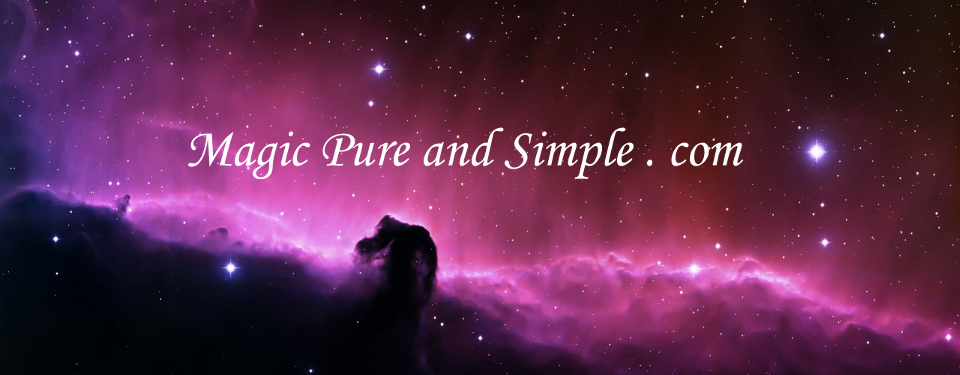Hey everyone, so today I am writing about the tradition that is often called Qabalah. Many people have noticed that it is spelt in a number of different ways, and I have seen strange theories arising from the depths of the internet concerning this and it is something I now seek to put right.
The original Hebrew for the word is the origin of all these spellings.

It consists of 4 main letters. Hebrew is what’s called an unpointed language, which means it has no vowels. Most of the time, these are just presumed when writing and reading. Post 1000CE various systems of adding the vowels to the letters were introduced. The line under the first character (right most character) is an ‘a’ vowel, the two T shapes under the middle two characters are also a-like vowels, and the dot in the middle of the second character (the second from the right) indicates that it has a harder pronunciation. Without these marks, the rest is still correctly spelt.
Qabalah
Two letters in Hebrew have exactly the same pronunciation in modern dialects. They sound like “K”. In similar languages like Arabic the same word might have a slightly different pronunciation for example the Arabic word for Market is Souq and the Hebrew equivalent is Shouk. In Arabic, the qaf letter is written with a ‘q’ to emphasise that it has a slightly different pronunciation further back in the throat.
Go to Google Translate and listen to ‘Souq’ (they seem to be adding a classical Arabic -u / -un to the end of the word but I’m just concerned with getting you to hear how the q is pronounced slightly deeper).
https://translate.google.com/?sl=en&tl=ar&text=market%0A&op=translate
This distinction is enough that some words of Arabic origin are written with q to make the distinction obvious. Iraq, Qoran, Souq are all examples. This isn’t always the case, for example Koran is also an acceptable spelling in English. In Hebrew, there’s no difference in pronunciation at all, at least not in any of the Modern dialects I have heard. Sometimes we still wish to preserve a distinction in a foreign language like we did with Arabic, and so any modern linguists of the Hebrew language will likely spell Qabalah with a Q to preserve that it is the Qof and not the Kaf letter.
Since this a modern practice, often when Qabalah is spelt with a Q in a text, it has become more commonly associated with modern interpretations of Qabalah, however the word Qabalah could also be used for referring to old Qabalah too. There is no sharp distinction which is used by everyone in the field. If I pick up a text and it uses the term Qabalah I can rarely make any assumptions about its content.
Kabbalah
The Jewish people are used to transliterating Hebrew words into English particularly over the last 200 years, so using the K is quite common for many Jewish words and it perfectly resembles how they are pronounced. This spelling has been commonly used in the last 200 or so years when Jewish people felt the need to codify Qabalistic texts in English or other languages. Therefore, it was most commonly associated with the Jewish people’s understanding of their own mystical practice. If I were to pick up a text that spells Kabbalah as such, I would assume that it was written by Jewish people and not reflective of modern Qabalah, Hermetic Qabalah or Christian Cabala. This is not guaranteed, but a reasonable impression to be left with.
The Bet (B sounding letter) is called a double letter because it can sometimes be pronounced as b and sometimes as v. Having the dot in the middle of the letter ensures that this is pronounced as B and never V. In some rarer dialects, I don’t think they are used any more, this is b and bb, if the harder version is used. This is rare, but it might have influenced the spelling with the double b. The Modern Hebrew dialects don’t tend to use this pronunciation any more from what I can tell.
Cabala
The spelling with a C comes from early attempts by Christian authors to render the word Kabbalah into Latin as Cabala. This doesn’t reflect how its is spelled in Hebrew dropping the H because it is silent and using C which sometimes has a softer pronunciation such as in science. Jewish authors at the time mostly wrote in Hebrew and Aramaic, so this spelling was only really used by Christians who wrote about Qabalah in Latin, French, Italian and German. So the Cabala spelling has become associated with early Christian Cabalists such as Johann Reuchlin, Kircher, Knorr van Rosenroth, Giovanni Pico Della Mirandola, etc.
Common misspellings
A translation of Franz Bardon’s Key to Qabalah has added an accidental u to the spelling because in English ‘u’ most commonly follows ‘Q’, but this is not accurate. Quaballah is wrong. Also, I remember someone becoming renowned for inventing English Qaballa. There is no basis for doubling the L unless it has some pointless meaning in English Qaballa and frankly I think if you need to misspell the word to give it a numeric attribution then you are missing the point. These are misspellings and not accurate. Also, there is no basis for doubling the L in any of the Hebrew pronunciations of the word or any pointing system such as the Niqud.
Conclusion
Qabalah – Modern spelling means every type of Qabalah out there.
Kabbalah – Most commonly used by Hebrew authors writing in English but not limited to their use.
Cabala – Almost exclusively used by Christian cabalists. It’s reasonable to assume someone using this spelling of the word is referring to Qabalah as explored by Christians particularly from 1500s-early 1900s.
Quaballah, Qaballa – inaccurate spellings, but made popular by certain respected authors using them.

Leave a Reply